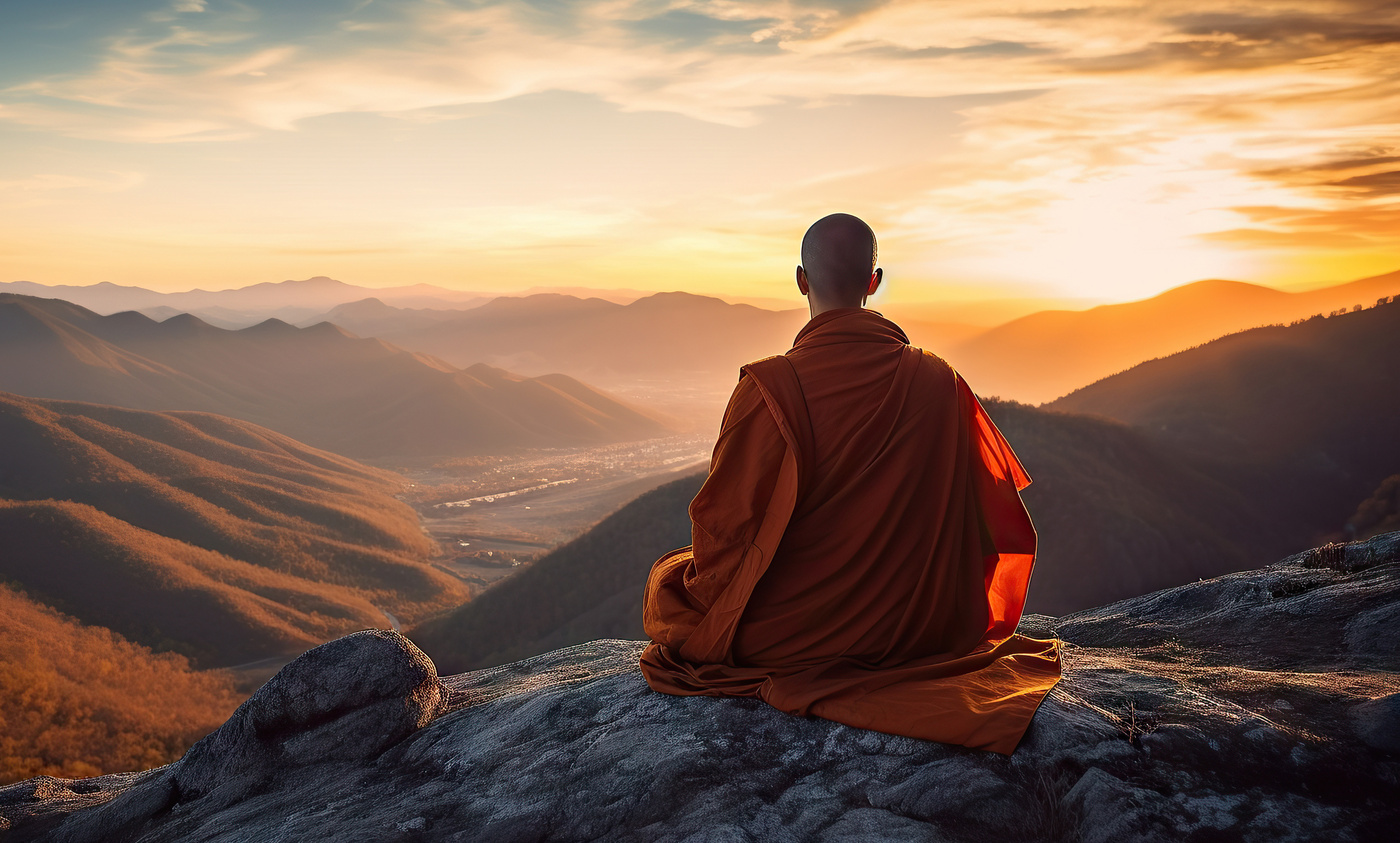Translated By Tara Lau
Those who practise Chan meditation may reach an advanced stage of cultivation where indiscriminate wisdom is subject to neither speech nor thought. That is to say, the conceptualisation involved in both speech and thinking does not operate anymore, thus generating no more delusional nor discriminatory ideas.
In the words of the Tiantai School, this state is like that of candlelight placed in a tightly enclosed room, without any wind blowing to shake or dim the steadily focused illumination. When a person’s state of mind is free of any karmic affliction intruding like a wind blowing over a lit candle, it is as if having cleared up the disturbance of confusion and attachment, the mind becomes pure and unshackled.
A quietly pleasant mountain is most suitable for Chan practice. Since ancient times, Chinese Buddhists have chosen remote, uninhabited mountain sites for cultivation, and have written numerous poems about dwelling in them. Among them, those by the master Zhongfeng Mingben of early Yuan in particular have simple diction and profound import, rendering a rich sense of joy from Chan meditation.
“All alone in the depths of mountains, I sit in the lotus position,
Experiencing emptiness and radiance with one contemplation.
My body, like a bright moon hanging high up in cold heavens,
Gives off nothing but a clear shadow falling onto many places.”
The master, living in a hut on a mountain peak, cultivates Chan diligently all day long, and so he says, “All alone in the depths of mountains, I sit in the lotus position”. The lotus position is a typical cross-legged sitting posture for Chan meditation. “Experiencing emptiness and radiance with one contemplation.” Practising Patriarchal Chan, the monk follows one single topic of query till the very end. “Experiencing emptiness and radiance” means that his mind is as vast as the void and as lucid as pure candlelight, without a wind of karmic affliction blowing over its steady illumination. By this time, his body is “like a bright moon hanging high up in cold heavens”, the moon or moonlight being a metaphor popular with Buddhists to denote a state of samadhi brought by Chan. “Experiencing emptiness and radiance with one contemplation” describes the practitioner’s inner mind, whereas his body, like a bright moon hanging in the cold, unfathomable sky, is clear and spotless. The moon appears in the sky, and yet it does not reside in it, being neither attached nor detached.
My body gives off nothing but a clear shadow falling onto many places”. While the moon in his mind is bright and flawless, its clear shadow is projected over thousands of rivers and lakes on earth.
Master Zhongfeng was an ascetic sequestered deep in the mountain. If others found out his whereabouts, he said that he would simply move on further into the mountains. Calling himself “a Taoist recluse with an elusive home”, he had no fixed abode, and yet he resided constantly in samadhi or mental concentration. Another one of his mountain dwelling poems reads,
“Letting go of body and mind brings time to burn,
With an ageing life to spend in many a mountain.
From drifting out of the ravines stop clouds white,
For they may guard my home with a moon bright.”
Having relinquished his mental hold on body and mind, the delight from an unattached mental state derived in Chan brings him total freedom, so he is planning to age in the mountains. Even though the monk lives all by himself in seclusion, white clouds have become his fellow companion in cultivation. They float constantly and are unsettled, implying that ignorance and mental trouble could be disturbing. Yet the master’s concentration is deep and solid, so that he is simply not bothered. Therefore, “From drifting out of the ravines stop clouds white, for they may guard my home with a moon bright”.

